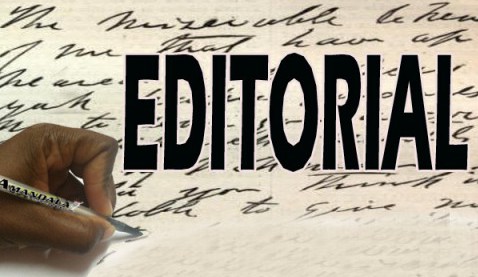“Today, the Belize City House of Culture and Downtown Rejuvenation Project was officially launched. The fifteen million dollar development was made possible through a loan from Taiwan, and counterpart funding from the Government of Belize, the National Institute of Culture and History, and the Belize City Council.”
– News 5, Wednesday, April 8, 2015
There was a class of native people in British Honduras, primarily Creole people in the capital city of Belize, who accepted British colonialism, and, in fact, embraced that colonialism. These are people we may describe as Anglophiles. They admired British dress, British speech, British manners, British ideas, British literature, British diplomacy, and so on, and all this amounted to a vote for the British Empire, which was, undeniably, an imperialist and racist institution.
Two aspects of British colonialism in Belize must never be swept under the rug. One is that, while the British administrators accepted the Garifuna people here in the first part of the nineteenth century, the same Garifuna people they had tried to exterminate in St. Vincent, it was clear by the early twentieth century that the Garifuna were being discriminated against where postings in the public service were concerned. It was the Roman Catholic Church which opened up opportunities in teaching for those members of the Garifuna people who were more intellectually inclined.
The second aspect of British colonialism here which must never be forgotten is that the Maya and Mestizo refugees from the Caste War in the Yucatán who came to Belize in the second half of the nineteenth century had a tough time under the British. Entry into the public service, again, was pretty much closed to Maya and Mestizo Belizeans in the first half of the twentieth century.
When the nationalist revolution began in Belize in 1950, it became evident that the masses of the Creole people were not Anglophiles. The Anglophiles were an elitist minority. The anti-colonial People’s United Party (PUP), which began in Belize City in partnership with the General Workers Union (GWU), became popular throughout the colony, so that we saw a unity of the Belizean masses across ethnic lines in the struggle for self-rule. (Belize became self-governing in 1964, but political independence was delayed until 1981.)
The first political opposition to the PUP, the National Party (NP) established in 1951, was obviously of an Anglophilic nature, but when the former PUP stalwart, Philip Goldson, teamed up with the NP to form the National Independence Party (NIP) in 1958, Her Majesty’s Loyal Opposition became less pro-British. And when the Goldson-led NIP entered a coalition with the People’s Development Movement (PDM) and the Roman Catholic Liberal Party to form the United Democratic Party (UDP) in 1973, the Opposition became more pro-American than pro-British. The UDP immediately attracted nationwide support. The UDP was not linked with British colonialism, as the NP had been and the NIP had been to a lesser extent, in the eyes of Belizean voters.
Since independence, the UDP has won four of the seven general elections held in Belize. That elitist colonial nostalgia which was the major characteristic of the NP apparently remains somewhere in the UDP, however, if we are to judge by Wednesday’s fifteen million dollar colonial nostalgia decision. That decision dovetails with the tourism emphasis which now dominates the UDP’s development philosophy. A stark contradiction, or even confusion we would say, lies in the fact that just a couple blocks away from the colonial “rejuvenation” area, a terrible human tragedy of violence and despair has been occurring for decades. The increased tourism profits which the fifteen million dollar project will spark for a few oligarchs, will not create meaningful improvement in the lives of the Southside desgraciados. And yet, election after election the results indicate that the Southside is a UDP political stronghold.
It seems to this newspaper that the PUP began making serious mistakes on the Southside around the time of independence, the PUP’s greatest triumph, in 1981. The PUP’s inability, or unwillingness, to see the Southside for what the Southside is, reached a climax in the aftermath of the 2012 general election when the PUP lost all six Southside seats and ranking PUP leaders were reported to have become so frustrated as to believe the PUP would have to win the next general election without the Southside.
The PUP’s attitude on the Southside is bad news for the Southside, because it means the Southside has to swallow whatever it is that this UDP administration chooses to dish out. The behavior of the Southside voters indicates that they do not believe they have an option in the PUP. So then, we have come to this: the sub/surface colonial nostalgia still lurking in the UDP has entered into a marriage with Belizean and international tourism’s neoliberal agenda. The roots people of the Southside were not invited to the wedding.
In the absence of a credible PUP option, UDP administrators were able to abuse the MCC Garden over a period of years with absolute impunity. In the absence of a credible PUP option, this UDP administration shows no urgency where the replacement of the Civic Center is concerned. Early reports from Marion Jones Stadium, closed down for years and years, say that the track situation is a joke. Football, basketball, and track are people-centered, youth-centered activities. These do not have a priority with the UDP: tourism does. And, there is no opposition to the UDP. The beat goes on. Bust the youth for his spliff. “Clean up” the city. Make it safe for the tourists. Recover and glorify the days when Britannia ruled the waves. Britons never, never shall be slaves. So, what about the rest of us?

